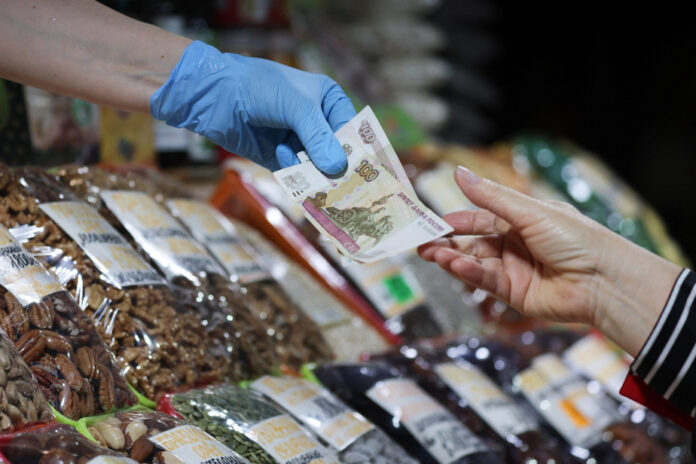(New York) The ruble fell to its lowest level in 16 months on Thursday, under the combined effect of a resurgence of inflation in Russia and the continuation of capital flight, against the backdrop of the war in Ukraine.
The Russian currency fell to 94,9875 rubles per dollar, a first since late March 2022, in the first weeks of the Russian invasion of Ukraine.
While it is theoretically allowed to fluctuate, the ruble “is tightly controlled” by Russian authorities, said Peter Rutland, a professor at Wesleyan University (Vermont) and an expert on Russia.
The fact that the Russian government let it drift like this nevertheless testifies to tensions within the Russian economy.
Although it has largely surprised analysts by avoiding going off the road since the start of the implementation of international sanctions, this economy is showing signs of weakening.
In its monetary policy report released on Monday, the Central Bank of Russia (BCR) said that “after a period of moderation in recent months, inflation (has) accelerated” in the country.
The pace of price increases “exceeds 4% at an annualized rate”, she continued, more than the BCR’s long-term target of 4%.
This renewed tension is explained, in part, by the fact that government spending and consumption are “growing faster than the capacity to expand” the Russian economy, according to the report.
This phenomenon encourages Russia to turn more to imports, which contributes to put the ruble under pressure.
On July 21, the BCR raised its policy rate for the first time since February 2022, to 8.5%.
In addition, at the end of July, the institution estimated that, since the start of the conflict in Ukraine, net capital outflows (outflows minus cash inflows) amounted to 253 billion dollars since the start of the war.
“The Wagner episode was the last nail in the coffin” of Russia in the eyes of foreign investors, said Peter Rutland, referring to the mutiny of this Russian paramilitary group in late June.
“The big question that everyone is asking is whether this has an effect on Russia’s ability to continue its military operations,” he explains.
“That doesn’t seem to me to be enough to end the conflict,” he said of the deteriorating economic conditions.















